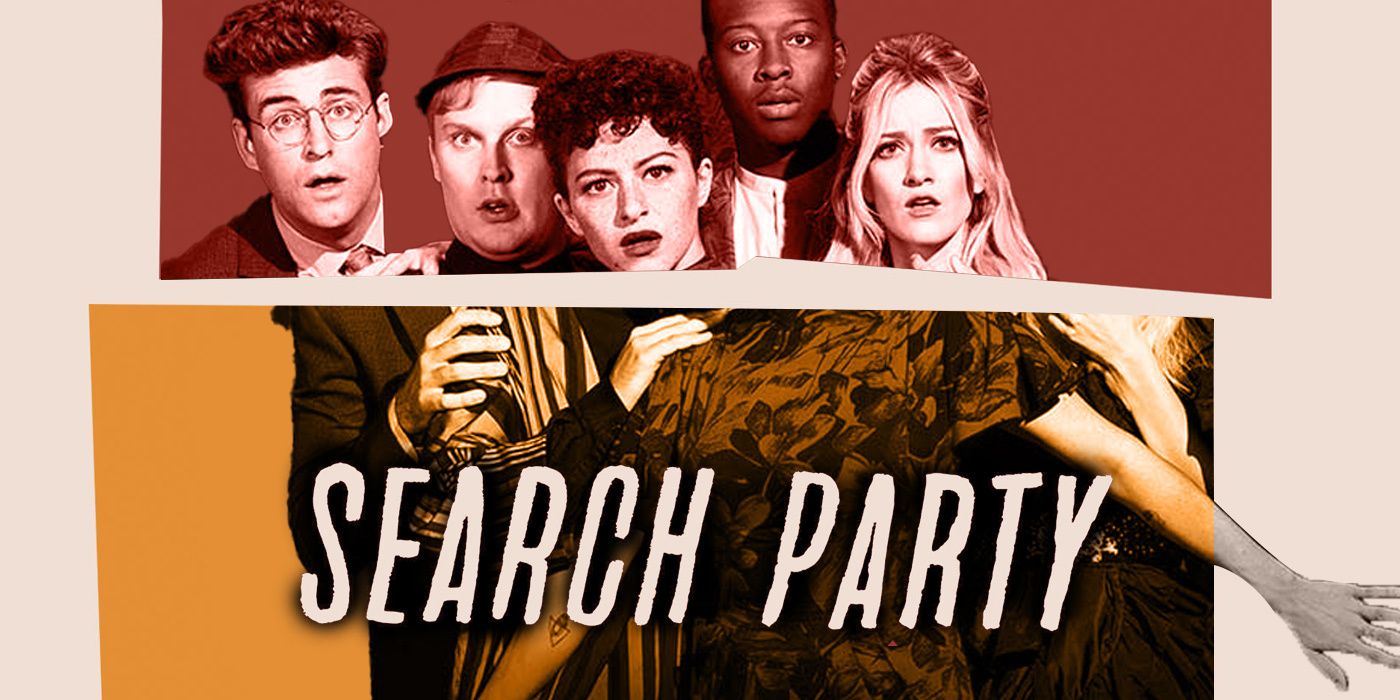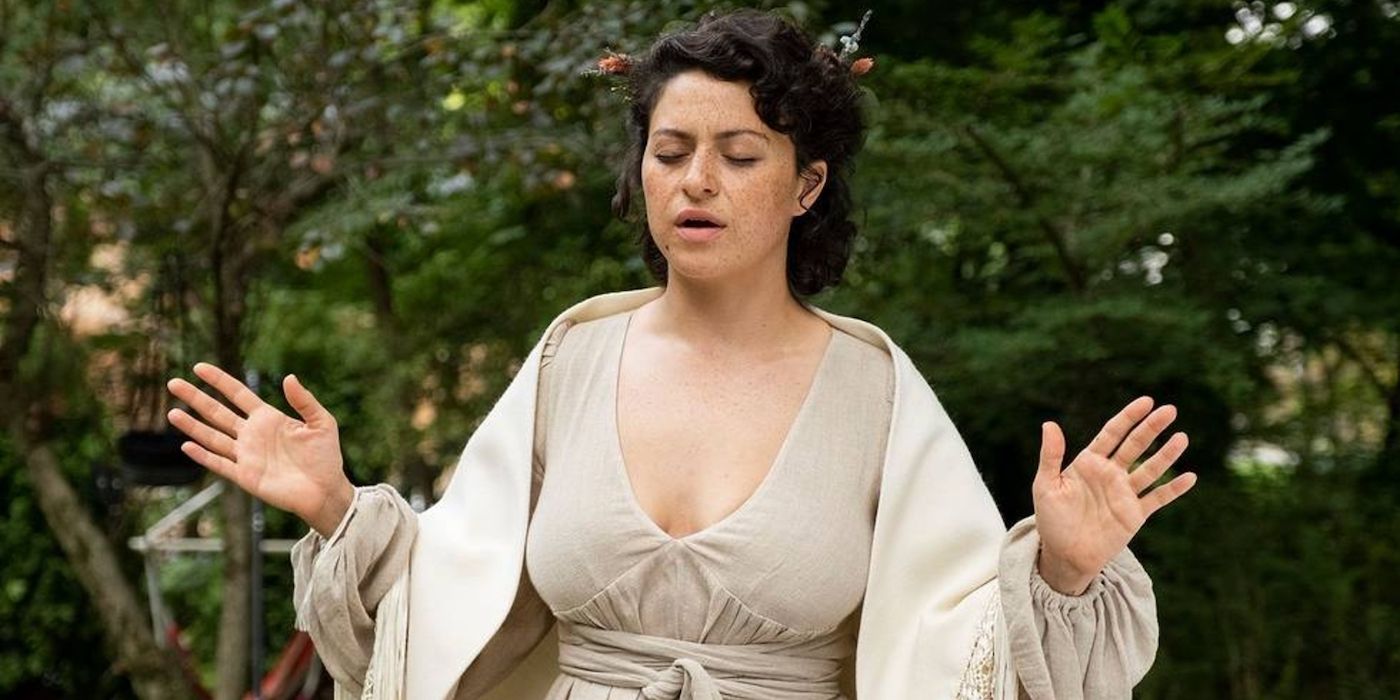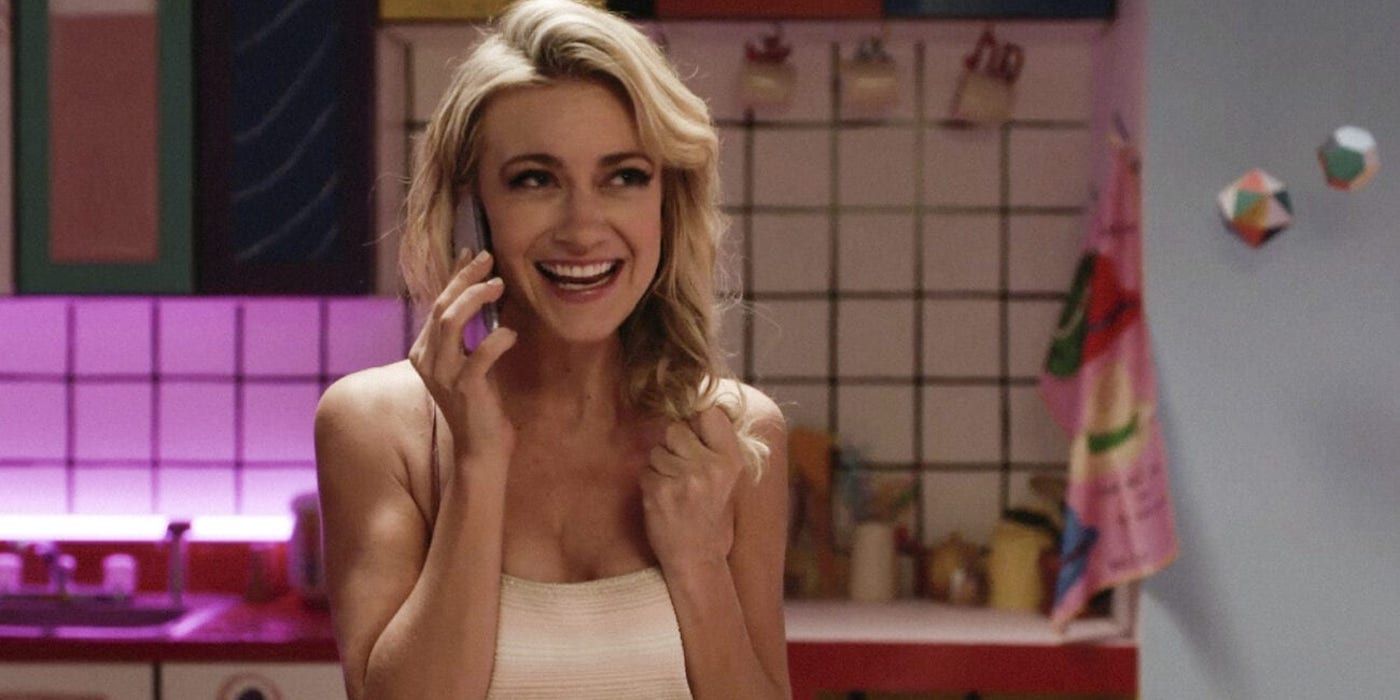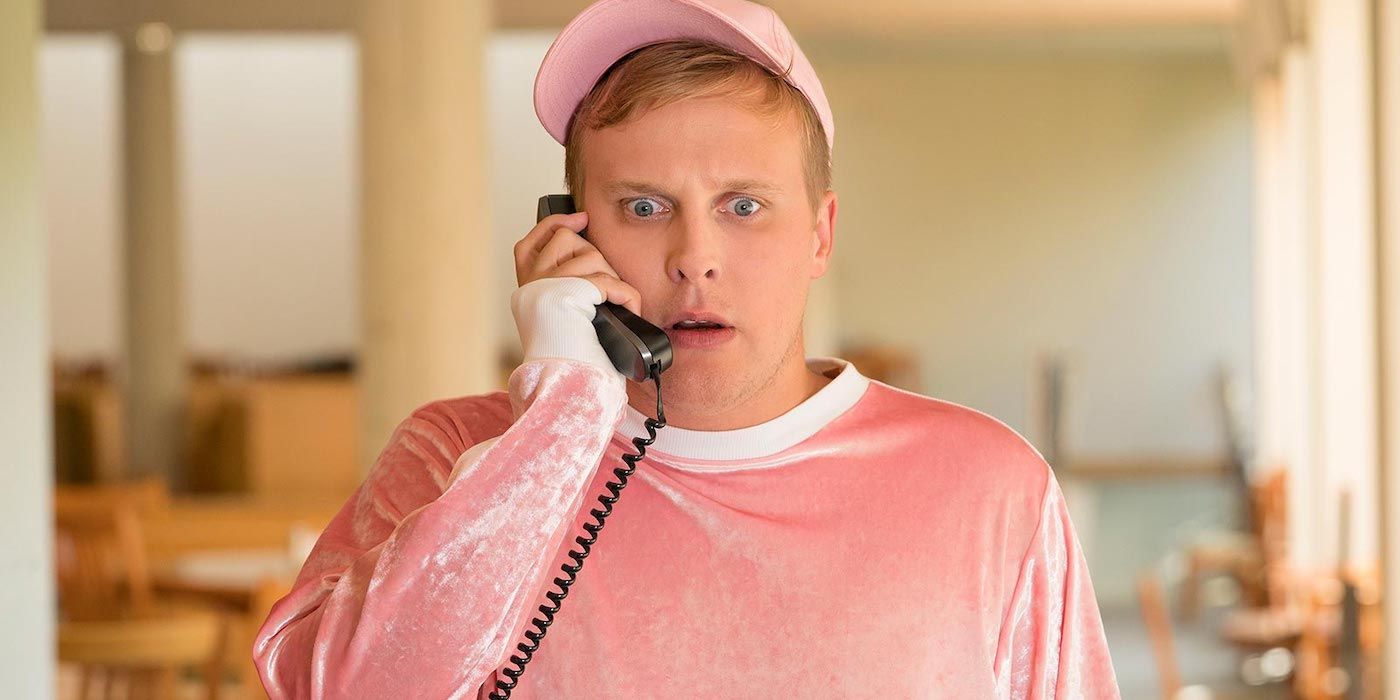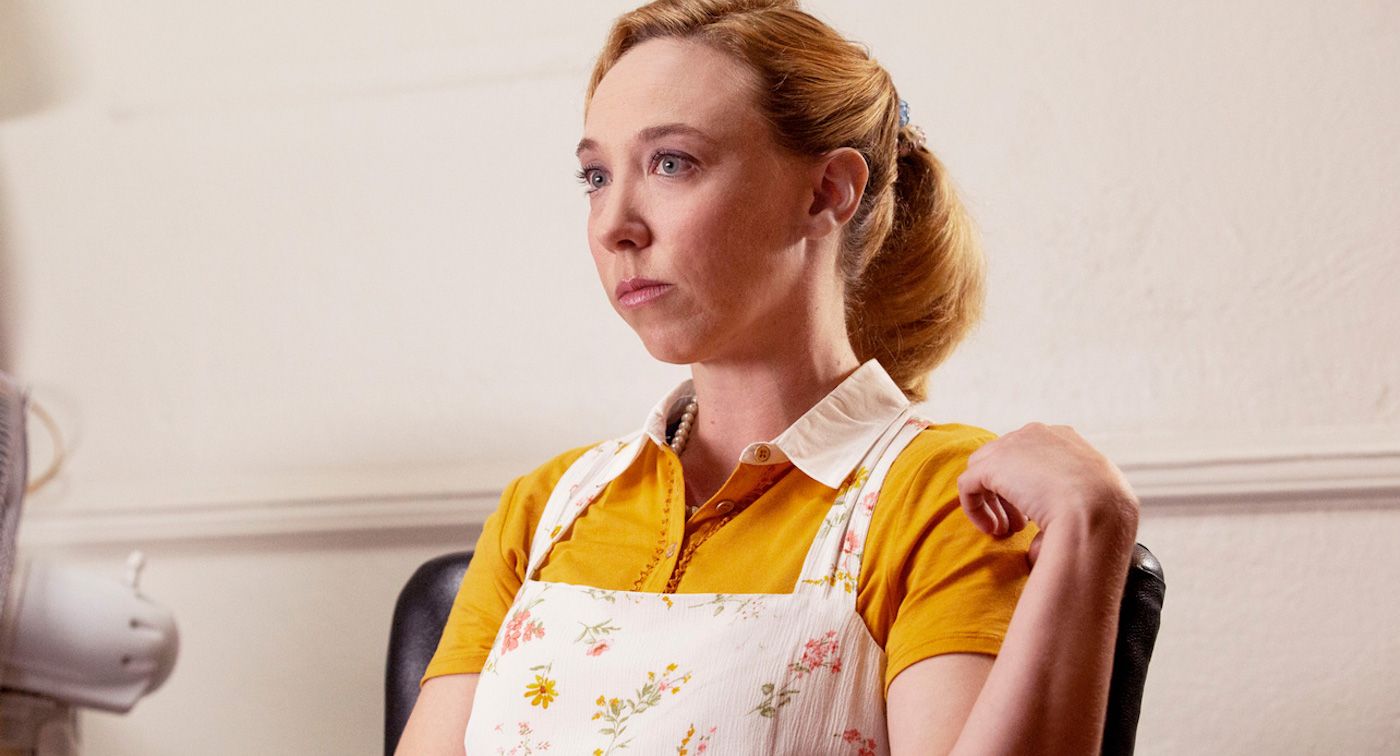Search Party is a little slice of genius. At the start of Season one, all the viewer knows is that these self-obsessed, shallow, mean, fame-chasing characters feel familiar. Millennials have received a lot of hate during their coming of age–participation trophies, internet addictions, an extreme sense of entitlement–which doesn’t always feel totally justified, but some criticisms definitely do. In typical “no one could hate me more than I hate myself” millennial fashion, Search Party creator Sarah-Violet Bliss takes this self-critical lens to the extreme. Featuring Alia Shawkat and Clare McNulty, each Season’s meta-textual genre experimentation plays with the pop-culture obsessions of millennials, which makes the harsh self-awareness fun and entertaining.
The way the characters live their lives and respond to the increasingly unhinged events of the series is classic narcissistic, vapid, virtue-signaling millennial culture–especially because, when all is said and done, despite being objectively bad people (another trope millennials love–an irredeemable cast) each one of them is still absolutely fascinating to watch. The trajectory of the characters feels very similar to previous shows of the same vein such as Girls, Broad City, and Difficult People, but with the addition of increasing camp throughout the Seasons, Search Party is able to hold an even more revealing magnifying mirror up to “Generation Me Me Me” without becoming too miserable to watch.
Alia Shawkat’s indie cred is basically unmatched at this point, so when she signed on as complicated, intense, and delusional Dory Sief, it foreshadowed great things to come. The series begins with Dory stumbling across a ‘missing persons’ flier with her college friend Chantal’s (Clare McNulty) face on it, effectively opening a can-of-worms that, over the course of five Seasons, spins out into the truly absurd. At first glance, and throughout the whole first Season, Dory seems like the most grounded person in her friend group. Her boyfriend Drew (John Reynolds) seems like the stereotypical J. Crew finance bro with a soft side, Portia (Meredith Hagner) is a silly, self-obsessed actress, and Elliot (John Early) seems like the worst character who appears to have no empathy and an entirely absent moral compass. But Dory? She cares.
She grows more and more fixated on and involved with the search for Chantal, growing more passionate and committed while everyone else tries to move on. Then things start to twist. The audience starts to wonder if Dory’s friends might be right–maybe her connection to the case isn’t as selfless as it seems. Dory is a fascinating unreliable main character, because–where someone like Elliot knows he’s being manipulative, dishonest, and at times straight-up malevolent, Dory has no idea. She sees herself as altruistic and her actions as justified. And she convinces everyone, even the viewer. By Season three, despite being totally guilty of two murders (only one of which she’s on trial for), and having implicated her (now ex) boyfriend and two best friends, Dory insists she’s innocent. It gets to the point where Shawkat becomes terrifying in the role as Sief’s veneer cracks and glimpses of her darkness peek through. It is her lack of awareness that makes her so dangerous.
John Reynolds is perfect casting for the lanky, handsome, awkward ukulele hobbyist and finance bro, Drew Gardner. The feminist-oriented, progressive millennial mind is primed to mistrust and dislike him from the very beginning of Search Party. The bad singing, the terrible, uncomfortable sex scene, the way he won’t stand up for his neighbor who Dory and Drew can hear being abused because he’s afraid– everything points to him being something Dory will transcend and overcome. The college sweetheart the modern woman leaves behind to find herself. But Drew is on a kind of opposite trajectory as Dory.
Where the audience trusts Dory and comes to realize that all is not as it seems, they initially mistrust Drew and end up seeing him as the voice of reason–another victim to Dory’s sociopathic quest for power. Several times he describes himself as addicted to her. He makes terrible life choices to remain by her side, and every time he manages to get away and find some sliver of hope for redemption and happiness, he relapses, just like the other characters. He’s no better and no worse. The way show creator Sarah-Violet Bliss plays with the audience's expectations in this way is what makes Search Party such a compelling story. Even using the true-crime format for the first Season (in true-crime, the boyfriend is always guilty) is subverted into more nuanced discussions of truth and morality. Drew isn’t totally pure, though–as the show likes to point out, nothing is that black-and-white. He sees an opportunity to ruin a co-worker’s marriage to get out of the country to avoid extradition and takes it, he blackmails a creep to get money to pay for information on Chantal’s whereabouts, he ghosts a sweet (albeit strange) girlfriend who really loves him to chase after Dory even after he really sees her for who she is, and he continuously chooses this toxic group dynamic over his stable and supportive family, showing he is not immune to corruption.
Meredith Hagner’s performance as Portia Davenport is as multifaceted as the character herself. Portia and Elliot are the most cartoonish characters in the fearsome foursome, and they really bring much of the comedic relief. However, Portia’s actual talent and clarity as far as what she wants to do with her life make her the most grounded in many ways. Although her naivaté, her yearning for external validation and approval, and her difficulty with critical thinking are her fatal flaws. For most of Search Party, Portia is the most likable character. This mostly comes from her people-pleasing and her genuine love for everyone in the group. She sometimes falters–her loyalty is often tested, and she fails to do the “right thing” in the group’s eyes, but she’s always remorseful and forgiven. She is also very susceptible to manipulation.
In Portia’s most fascinating scene, she’s auditioning for a play about the Charles Manson murders. The director Elijah (Jay Duplass) tests her to see how far she’d go when prompted. He tells her to randomly call an old friend and insult her. She doesn’t enjoy doing it, she tears up and her voice shakes throughout the entire tense moment, but she goes through with it and ends up landing the role. The parallel between Manson and Dory is fascinating and becomes more pertinent as the show goes on. Portia does manage to stand up to (and even betray Dory) more than once, but ultimately the fate of her character is determined the moment she makes that phone call. This comes up again when Portia and Dory begin hooking up in the final Season as Dory becomes a cult leader. Portia, who’s never mentioned being queer, never expressed any interest in dating Dory, and in fact, at one point was one of her most outspoken dissenters, falls madly in love with her and for a good chunk of the Season is her most devoted disciple. Although, she does poison her out of jealousy and possessiveness, so, it’s complicated. Portia’s most profound moment of clarity comes at the climax of the zombie apocalypse brought on by Dory’s enlightenment/psychosis, when Portia turns to her friend, her lover, her leader, who has so often led them into the mouth of madness and says, simply but powerfully “you did it again, babe.” And still, moments later, Portia defers to Dory to tell her how to feel about the end of the world.
At first, Elliot Goss is the most unlikable character. His narcissism is the most overt, he is flippant, harsh, and superficially charming and his superiority complex is off-putting. But then something amazing happens. John Early is irresistible, gorgeous, hilarious, and at times touchingly vulnerable as the fashionable gay social climber/wanna-be philanthropist. Elliot’s superpower within this group is his self-awareness. Everyone else is so convinced that they are a “good person,” but Elliot is totally ok with who he is, which in turn kind of makes him a better person. Every time he is exposed for being a pathological liar, he comes back even stronger– owning it, making jokes out of it, and managing to “fail upwards” again and again. It makes him likable.
The parallel between Elliot’s relationship with his partner Marc (Jefferey Self) and Dory and Drew is indicative of this. At Dory’s imaginary funeral Elliot gives a speech about radical acceptance of the self and the other–he talks about how important it is to see, accept, and love the flaws and darkness in ourselves and in the people we love. This sentiment ends up being very true for Elliot’s character and the Bizzaro integrity of the way he lives his life. Dory and Drew are toxic. They are the kind of couple everyone is rooting against because the drama is excessive. Drew realizes this but keeps going back and pretending things are different. Dory even blames Drew for his devotion to her, all while convincing him to stick around. Marc and Elliot, on the other hand, acknowledge that they are toxic and just kind of lean into it. There is an aspect of consent present that comes from Elliot’s willingness to admit he’s problematic which makes the connection feel more real than Dory and Drew’s. Elliot’s not going to change, he’s not a good person, he’s self-serving right up until the end, but at least he’s honest about it. In fact, it might be the only thing he’s honest about.
Chantal is the most extreme critique of millennials out of a cast of characters designed to critique millennials. She’s spoiled, entitled, shallow, she never takes responsibility for her actions, she has zero self-awareness, and she’s, overall, kind of a nightmare. Clare McNulty adds the highest dose of camp to Search Party from the second the crew finds her hiding out in a friend’s vacation home, accidentally faking her own death because she got her heartbroken by sleeping with a married man. She is funny. Chantal is entirely self-obsessed, she’s immature, she ruins several people’s lives, and never even considers the damage she leaves in her destructive wake. She is a perfect foil to Dory.
They both suffer from the same dysfunction, but it manifests in oppositional ways. Chantal is right out front, so emotionally disregulated, so utterly unaware that what she’s doing is unacceptable, that her dysfunction is loud. Dory, on the other hand, is subdued, more covert, from the outside more reasonable, but just as destructive as Chantal. The final interaction between Dory and Chantal is the perfect summation of their parallel journey throughout the series. Chantal has become convinced that the end of the world was brought on by a time traveler impregnating her with the antichrist in some future moment, so she goes about saving the world, wielding a flamethrower, and appearing actually empowered for the first time in five Seasons. Dory knows it was her enlightenment pills that triggered the apocalypse. The two characters argue back and forth like children for a second, fighting to take credit, until Chantal gives up, decides it doesn’t matter, and leaves Dory with “you know what, you’ve always had delusions of grandeur.”
Every character in Search Party embodies the worst criticisms hurled at millennials, and every character feels like someone you could meet at brunch in Bushwick. The group dynamic feels like a Kardashian-style argument where everyone is pointing at everyone else and calling them a narcissist, ironically oblivious to the fact that they are all narcissistic. The more privilege a character has, the less awareness; the less awareness, the more sure they are that they are good and the less likely they are to change. Search Party is frustrating, uncomfortable, and scathing, but it’s also postmodern camp at its best. Its brutal honesty served with a smile.

